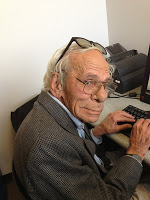Perhaps I’m too practical to be interested in utopian fantasies. They’ve never appealed to me. After all, I grew up in Kansas and even the Wizard of Oz lived somewhere else and, when found, was shown to be a fraud. I had a friend who grew up near Liberal, Kansas, right there in the center of Dorothy country. He was brilliant, talented in music and organization, a teacher, and probably had red slippers in men’s size 12. He was gay and came to understand life was never utopian although he could dream. I had a different kind of Kansas imagination, but we liked each other and were fine friends for many years. He fled the wheat fields of southwest Kansas. I left the state for more education. We met up in Colorado, Texas, New Mexico, and eventually San Francisco. Now this latter place seemed utopian to him and opened him wide to his sexuality. He lived high on the hill on Castro Street, could watch big ships move in and out of the port, had lots of fun, and felt the kind of acceptance he needed. But it was no utopia. He loved it there, but life in gay San Francisco was not without its hazards. To me it seemed he lived rather fully into all of those hazards. They took their toll, and I made my last trip there to memorialize him, a man who lived and worked to make a gay utopia deliver the goods so Kansans and other people could enjoy who they were or who they wanted to become. I applaud his efforts; I miss him still many years after his memorial service.
I don’t tell this as a sad tale. Of course I cried at my loss of him. I too understood the attraction of the utopia out there by the western sea. I loved being with him walking up and down the steep hills, hearing great musical performances, visiting parks, strolling along the beach, hiking out to Land’s End, talking about life and his life and my own.
The experiments for this kind of utopian life continue in urban centers far beyond the reach of his lifetime. Anytime I am involved, I recall Ted’s contributions. We made music together, danced, and laughed in the little utopia of our friendship. Such utopias are necessary. Their pursuit brings quality and love into human relations. Their possibility asks us to be kind to one another, to applaud all human efforts for equality and freedom, to create pockets of such mutual respect in order to keep hope alive. With this account I memorialize a deceased friend to an extraordinary group of elders and in this most appropriate place where we celebrate our comradeship through telling stories and listening to the stories of others. Our sharing keeps alive the necessary and possible kind of community to support our lives in freedom and in love, even if that community is somewhat less than utopian.
© 5 February 2018
About the Author
He also blogs at artandmorebyphilhoyle.blogspot.com

